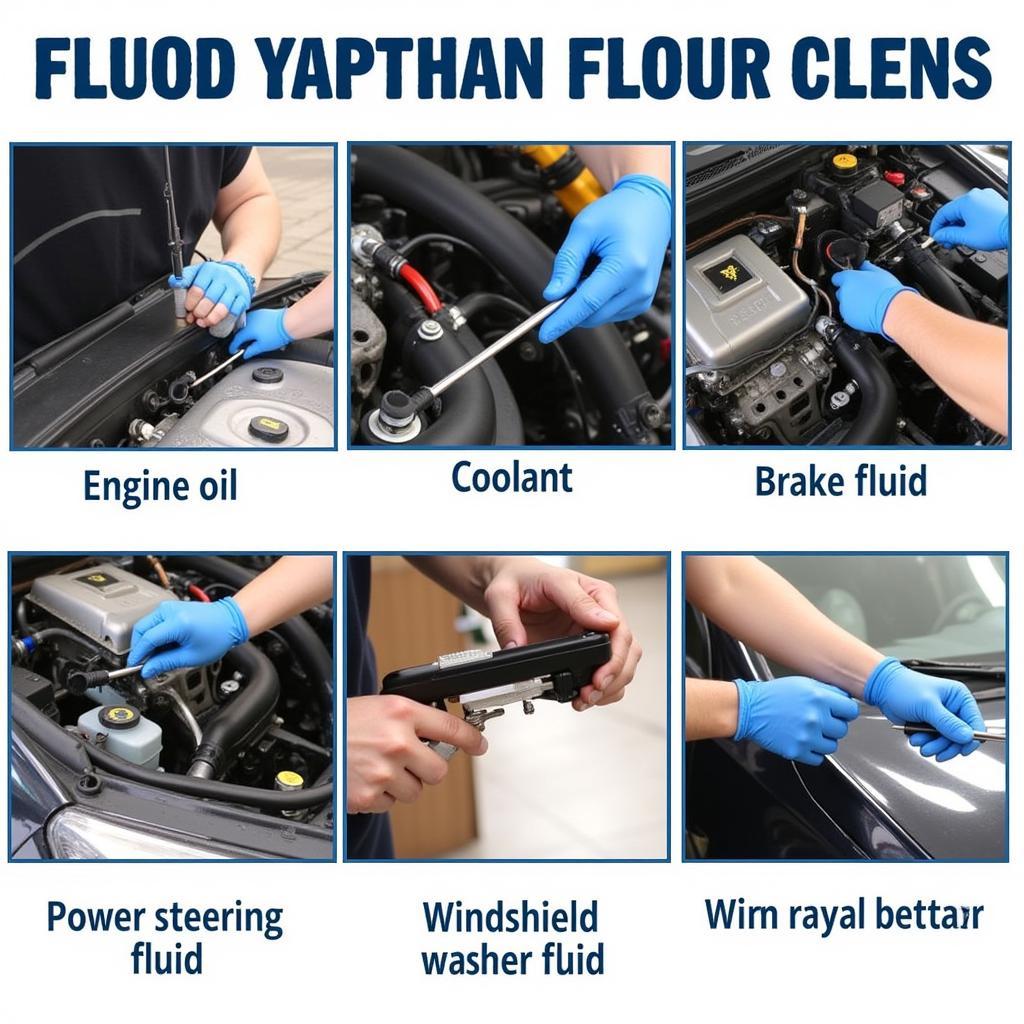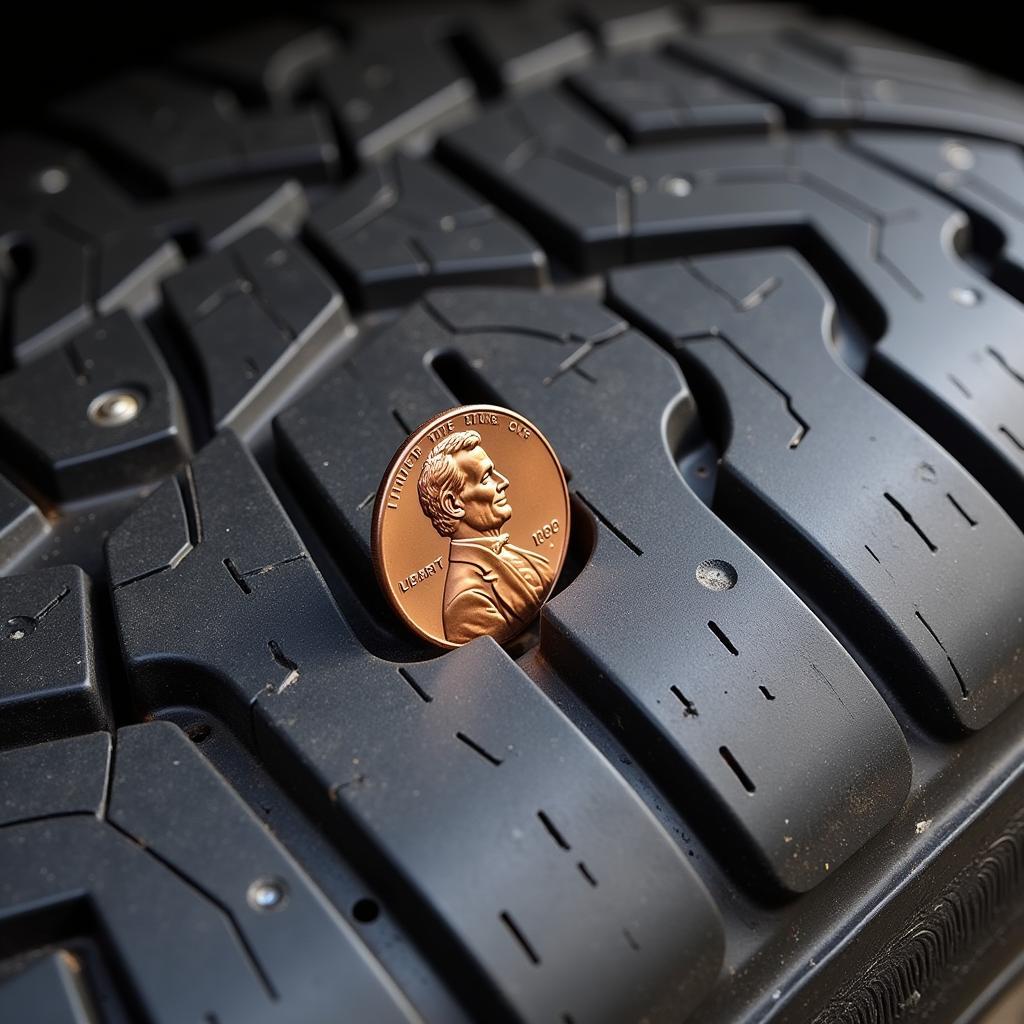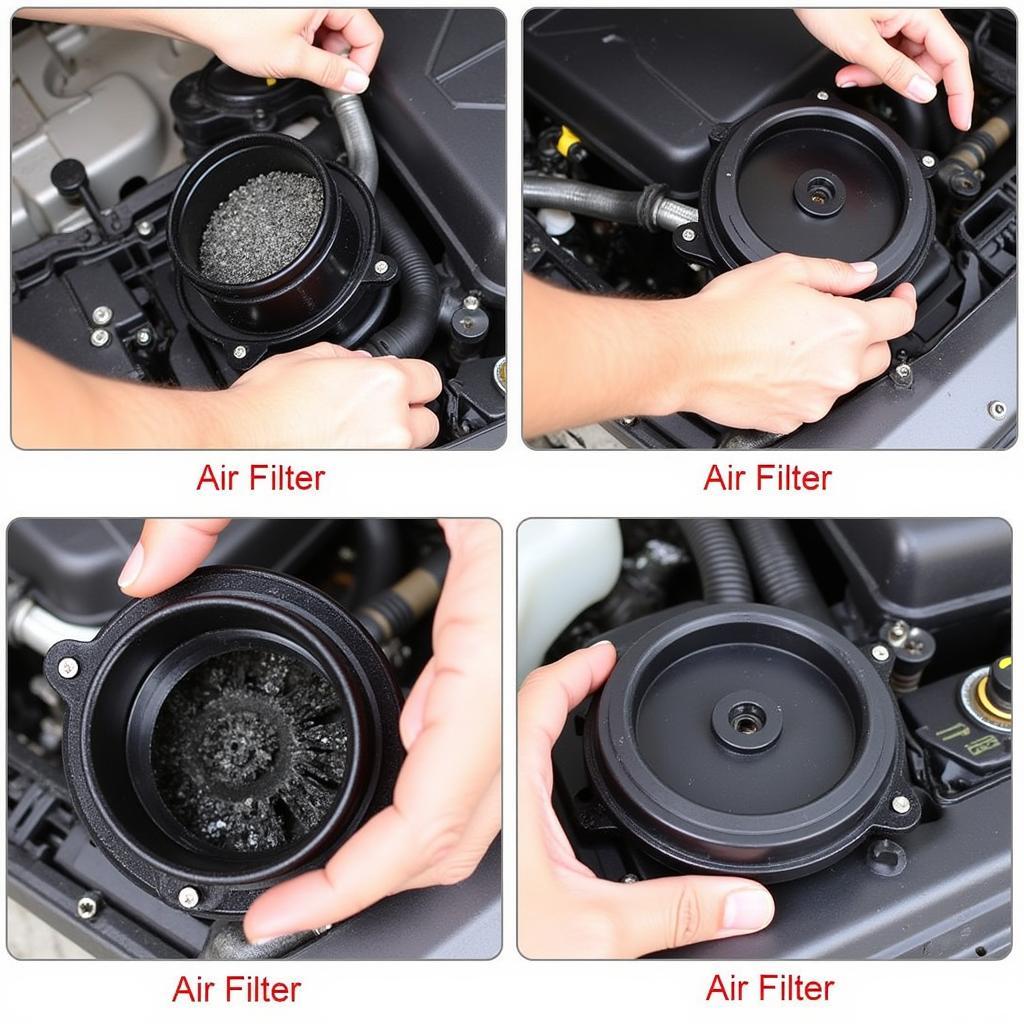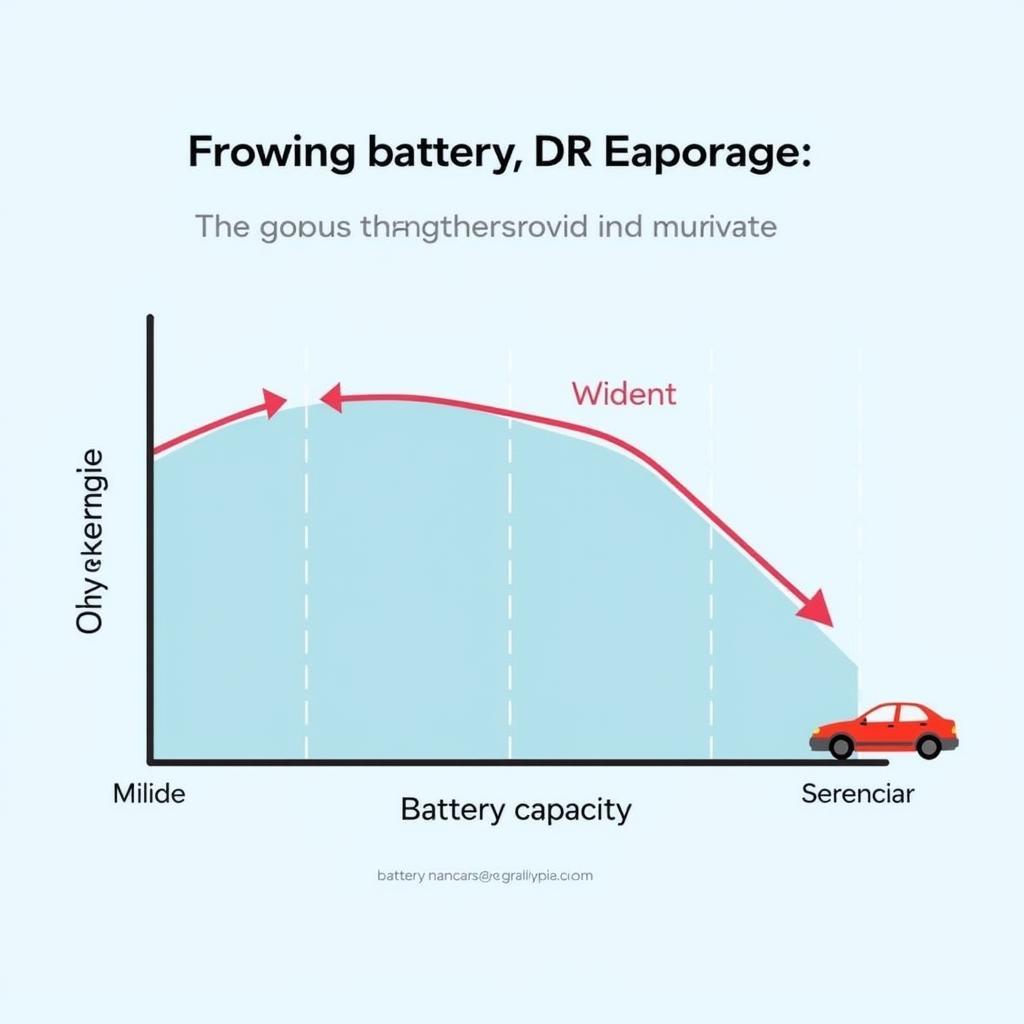Knowing How To Check Maintenance On A Car is crucial for its longevity, performance, and safety. This comprehensive guide will walk you through essential checks, empowering you to keep your car in top condition. We’ll cover everything from routine inspections to understanding your car’s maintenance schedule. After reading this, you’ll be able to identify potential issues early and save yourself costly repairs down the road.
 Checking Car Fluids
Checking Car Fluids
Checking your car’s fluids regularly is a fundamental part of car maintenance. Low fluid levels can lead to serious engine problems, so it’s essential to stay on top of them. Learn how to check your oil, coolant, brake fluid, and other important fluids in this section. Refer to your common car maintenance checklist for specific fluid requirements for your car model.
Essential Car Maintenance Checks
Maintaining your car doesn’t have to be daunting. By performing a few simple checks regularly, you can catch potential problems early and keep your car running smoothly.
How to Check Your Tires
Tires are your only contact with the road, making regular tire checks vital. Look for signs of wear and tear, such as uneven tread wear, bulges, or cracks. Check your tire pressure using a reliable gauge and ensure it matches the recommended pressure listed in your owner’s manual or on the sticker inside your driver’s side door.
Why Should I Check My Lights?
Faulty lights are a safety hazard, reducing visibility at night and in poor weather. Regularly check your headlights, taillights, brake lights, and turn signals. Have a friend help you confirm that all lights are functioning correctly.
How Often Should I Check My Brakes?
Your brakes are your car’s most important safety feature. Listen for any squeaking or grinding noises, and check your brake fluid level regularly. If you notice any changes in brake performance, such as a soft pedal or longer stopping distances, have your brakes inspected by a qualified mechanic immediately.
 Inspecting Tire Tread Depth
Inspecting Tire Tread Depth
Remember to consult your car’s owner’s manual for the manufacturer’s recommended maintenance schedule. For specific checks related to higher mileage, see our guide on car maintenance checks for 30 000 miles.
Understanding Your Car’s Maintenance Schedule
Every car has a specific maintenance schedule outlined in the owner’s manual. Following this schedule is essential to keeping your car running reliably. This schedule outlines recommended service intervals for various components, such as oil changes, filter replacements, and spark plug replacements. Sticking to this schedule will help you avoid costly repairs down the line.
How to Check Maintenance Records
Keeping track of your car’s maintenance history is essential. This record helps you stay on top of scheduled maintenance and identify any recurring issues. Keep all receipts and invoices for any repairs or maintenance performed on your vehicle. A well-maintained record can also increase your car’s resale value. You can find helpful checklists for different types of vehicles, including freight cars, at our freight car maintenance checklist.
 Checking Engine Air Filter
Checking Engine Air Filter
“Regular maintenance is the key to a long and healthy life for your car,” says automotive expert, John Smith, ASE Certified Master Technician. “Think of it like regular checkups with your doctor – preventative care is always better than dealing with a major problem later.”
Conclusion
Knowing how to check maintenance on a car is essential for every car owner. By following these simple steps and understanding your car’s specific maintenance schedule, you can keep your car in optimal condition, extending its lifespan and ensuring your safety on the road. Contact AutoTipPro at +1 (641) 206-8880 or visit our office at 500 N St Mary’s St, San Antonio, TX 78205, United States for any assistance. Don’t forget to check out our comprehensive car maintenance.cuecklist for a handy guide you can keep in your glove compartment. Remember, a little preventative maintenance goes a long way! Also, be sure to explore our routine maintenance car checklist for further details.
“Don’t underestimate the importance of regular inspections,” adds Jane Doe, Lead Mechanic at Smith Automotive. “A simple check can often prevent a small problem from becoming a major headache and save you a significant amount of money in the long run.”
FAQ
-
How often should I check my tire pressure? Check your tire pressure at least once a month and before any long trips.
-
What should I do if I hear a strange noise coming from my car? Don’t ignore unusual noises. Have your car inspected by a mechanic as soon as possible.
-
How often should I change my oil? Refer to your owner’s manual for the recommended oil change interval. It’s typically every 5,000-7,500 miles.
-
What are the signs of worn brakes? Signs of worn brakes include squeaking or grinding noises, a soft brake pedal, and longer stopping distances.
-
Why is it important to follow my car’s maintenance schedule? Following your car’s maintenance schedule helps ensure its reliability, performance, and longevity.
-
What should I include in my car’s maintenance records? Keep all receipts and invoices for any repairs or maintenance performed, including the date, mileage, and type of service.
-
Where can I find my car’s recommended maintenance schedule? Your car’s recommended maintenance schedule is located in the owner’s manual.





Leave a Reply